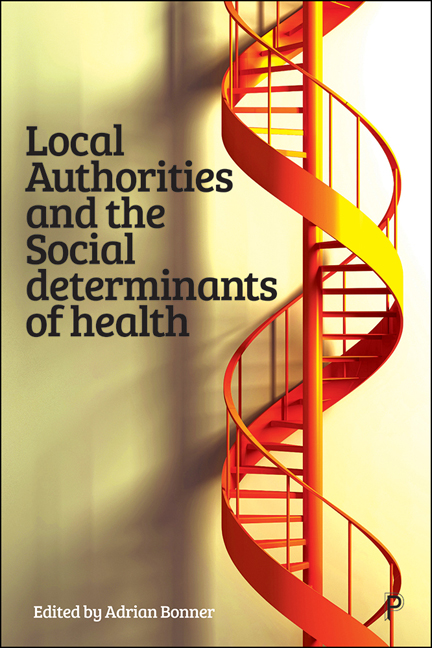Book contents
- Frontmatter
- Dedication
- Contents
- List of Figures, Tables and Boxes
- Notes on Contributors
- Acknowledgements
- Foreword
- Summary
- Introduction: Key Sociopolitical Changes Affecting the Health and Wellbeing of People
- Part I Health, Social Care and Community Wellbeing
- Part II The Role of Local Authorities in Promoting Health and Wellbeing in the Community
- Part III Local Authority Commissioning
- Part IV The Third Sector
- Part V Socio-Economic Political Perspectives
- Conclusion
- Appendix: COVID-19 Timeline
- Index
8 - Cultural Change and the Evolution of Community Governance: A North-West England Perspective
Published online by Cambridge University Press: 25 March 2021
- Frontmatter
- Dedication
- Contents
- List of Figures, Tables and Boxes
- Notes on Contributors
- Acknowledgements
- Foreword
- Summary
- Introduction: Key Sociopolitical Changes Affecting the Health and Wellbeing of People
- Part I Health, Social Care and Community Wellbeing
- Part II The Role of Local Authorities in Promoting Health and Wellbeing in the Community
- Part III Local Authority Commissioning
- Part IV The Third Sector
- Part V Socio-Economic Political Perspectives
- Conclusion
- Appendix: COVID-19 Timeline
- Index
Summary
Background
In 2010, the United Kingdom Coalition government gave increased decision-making power to local authorities, in a move towards ‘localism’. Local authorities were then able to determine their consultation processes with communities and citizens on the governance, service delivery and funding of local public services (Ferry et al, 2019). However, at the same time, the government imposed a policy of austerity, which meant that the decisions local authorities could make were restricted by substantial cuts in funding.
Under austerity, local authorities in England had to make unprecedented financial savings in response to dramatic cuts in funding from national government. The impact of these cuts has not been felt equally, with the areas of greatest need having suffered the greatest cuts. This was because central government allocation had previously been the biggest instrument of redistribution; without it, local authorities were forced to rely to a greater extent on local sources of income (for example, local tax revenue, sale of assets), which, for the most economically deprived areas, was less lucrative. Analysis by Gray and Barford (2018, p 550) shows that ‘across-the-board austerity cuts in local government spending have fallen most heavily on those local areas with greatest need’. It is likely that this period of austerity has been responsible for England's health getting worse for people living in more deprived areas; health inequalities increasing; and, for the population as a whole, a decline in health, as revealed in the ‘Marmot Review 10 years on’ report (Marmot et al, 2020). Here it is considered how utilising the newly allowed methods of democratic deliberation and the localism agenda can mitigate some of the negative effects of austerity, in a case study area where there appears to have been a genuine redistribution of power.
Assets-based approaches at a community level
In order to develop a process of communities sharing in decisionmaking power, communities need to be mobilised. This involves recognising a community's assets, known as an ‘assets based’ or strengthbased (rather than deficit-based) process. A community's assets are individual (for example, the gifts and skills of community members) or delivered through citizens’ associations (for example, religious, cultural, athletic organisations) and physical/formal institutions and facilities (for example, libraries, parks) (Kretzmann and McKnight, 1996; Russell, 2011; McKnight and Russell, 2018).
- Type
- Chapter
- Information
- Local Authorities and the Social Determinants of Health , pp. 149 - 172Publisher: Bristol University PressPrint publication year: 2020



